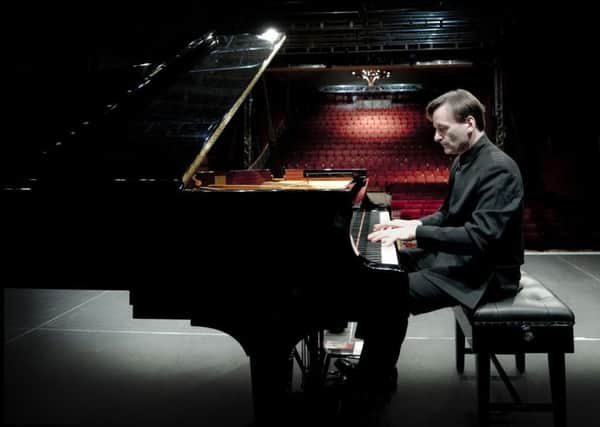Classical review: Stephen Hough


Star rating: *****
Venue: The Queen’s Hall
But alongside his astonishingly fiery, piercingly clear and direct pianism, there was a sense of reaching beyond the music, to something far more spiritual.
In Hough’s opener, Schubert’s austere A minor Sonata, D784, that meant revelling in stark, uncompromising contrasts between the music’s glowing lyricism and quite brutal tumult – a risky but highly effective strategy. In Franck’s Prelude, Chorale and Fugue, Hough was similarly hard-edged, but he edged toward an incense-scented sense of rapture in an expertly sculpted closing fugue.
Advertisement
Hide AdAdvertisement
Hide AdAfter the interval, questions of faith came more overtly to the surface in Hough’s own Third Piano Sonata, named Trinitas, a quirky, deeply personal work full of arcane symbolism, with religious dogma represented by 12-note serialism, for example. It was vigorous and rigorous, but also thoroughly entertaining in its jazzy rhythms and peeling bells evoked by splashy flat-hand clusters on the keyboard.
And in his closing quartet of Liszt showpieces – they’re not called Transcendental Studies for nothing – Hough looked way beyond the works’ pianistic pyrotechnics to a realm of emotion and intense spirituality.
It took his second encore – his own wildly inventive, uproarious reimagining of Waltzing Matilda – to bring us all back to earth.